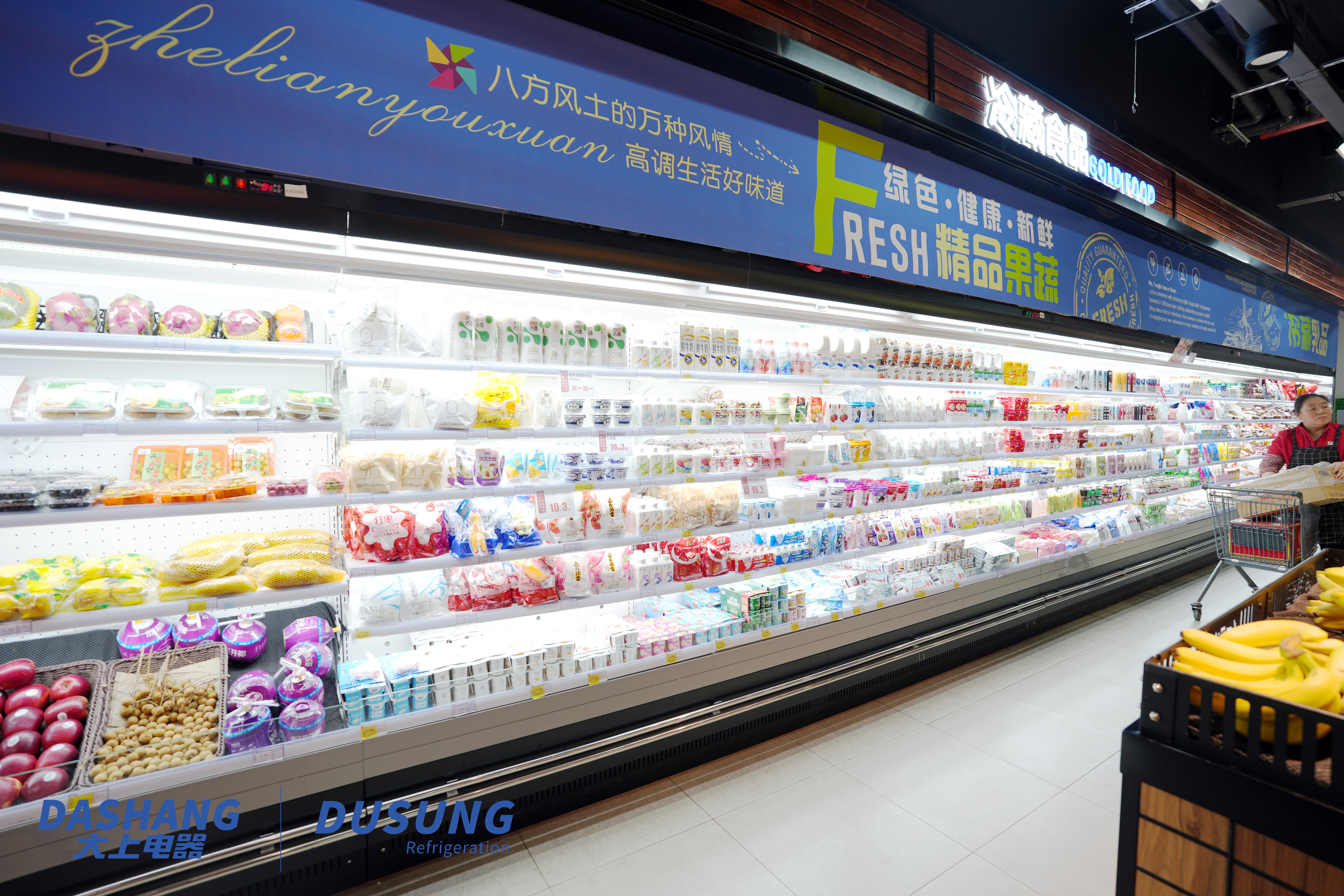For any business that handles food—from a bustling restaurant to a local convenience store—the commercial refrigerator is far more than a simple appliance. It’s the critical heart of your operations, a foundational investment that directly impacts food safety, operational efficiency, and, ultimately, your bottom line. Choosing the right unit isn’t just about keeping things cold; it’s about safeguarding your inventory, streamlining your workflow, and ensuring the health and satisfaction of your customers.
The Core of Your Kitchen’s Efficiency
A high-quality commercial refrigerator is built for the demanding pace of a business environment. Its design and functionality are centered on performance and reliability, providing a competitive edge you can’t get from a residential model.
Food Preservation & Safety: Unlike residential units, commercial refrigerators maintain precise and consistent temperatures, preventing bacterial growth and spoilage. This is essential for meeting health code regulations and ensuring every ingredient you serve is fresh and safe.
Optimized Workflow: With features like self-closing doors, adjustable shelving, and organized interiors, a commercial refrigerator is designed for quick, easy access. This helps your team work more efficiently, reducing prep time and improving service speed.
Energy Efficiency & Cost Savings: Modern commercial units are engineered to be energy-efficient. Features like high-density insulation, LED lighting, and advanced compressors mean they run less frequently and consume less power, leading to significant savings on utility bills over time.
Durability and Reliability: Built from robust materials like stainless steel, these units are made to withstand constant use and the rigors of a busy kitchen. Their reliability means less downtime and fewer unexpected repair costs, protecting your investment.
Choosing the Right Commercial Refrigerator
Navigating the market for a commercial refrigerator can be daunting, but focusing on your specific needs will simplify the process. Here are the key factors to consider:
1、Type:
l Reach-in Refrigerators: The most common type, ideal for easy access in kitchens. They come in one-, two-, or three-door configurations.
l Walk-in Refrigerators: Perfect for high-volume businesses with significant storage needs. They offer ample space and can be customized to your specifications.
l Under-counter Units: Designed to fit neatly under a countertop, these are great for small spaces or for keeping ingredients close to a prep station.
l Merchandiser Refrigerators: These units have glass doors and are used to display products for customers, common in convenience stores and delis.
2、Size and Capacity: Measure your available space and calculate your storage needs. A unit that is too small will lead to overcrowding and inefficiency, while one that is too large wastes energy and space.
3、Key Features: Look for features that enhance usability and performance. Digital thermostats offer precise temperature control, while self-closing doors and magnetic gaskets prevent cold air loss.
4、ENERGY STAR Rating: Always look for this label. An ENERGY STAR-certified commercial refrigerator has been independently verified to be more energy-efficient than standard models, translating to lower operating costs for your business.
Essential Maintenance for Longevity
To ensure your commercial refrigerator performs optimally for years to come, proactive maintenance is a must.
Regular Cleaning: Clean the interior and exterior monthly to prevent grime buildup and ensure proper hygiene.
Check Door Seals: Inspect door gaskets for cracks or tears. A damaged seal allows cold air to escape, forcing the compressor to work harder.
Monitor Temperature: Regularly check the internal temperature with a thermometer to ensure it stays within the safe range (typically 35°F to 40°F).
Keep the Condenser Coil Clean: Dust and debris can clog the condenser coil, reducing efficiency. Clean it every three months to maintain performance and prevent overheating.
Conclusion
Investing in a high-quality commercial refrigerator is one of the most important decisions you will make for your food business. It’s an asset that supports food safety, enhances operational efficiency, and contributes directly to your profitability. By choosing the right type of unit and committing to regular maintenance, you ensure that this vital piece of equipment remains the reliable backbone of your success.
Frequently Asked Questions about Commercial Refrigerators
Q1: What is the main difference between a residential and a commercial refrigerator?
A: Commercial refrigerators are designed for heavy, constant use in a demanding environment. They feature more powerful cooling systems, robust construction (often stainless steel), and are built to maintain consistent temperatures even when doors are frequently opened, which a residential unit cannot handle.
Q2: How can a commercial refrigerator help my business save money?
A: A modern, energy-efficient commercial refrigerator saves money through lower utility bills, reduced food spoilage, and fewer repair costs due to its durable construction and reliable performance.
Q3: What does the ENERGY STAR rating mean for a commercial refrigerator?
A: The ENERGY STAR rating signifies that the refrigerator has been certified by the U.S. Environmental Protection Agency to meet strict energy efficiency guidelines. This means the unit consumes less energy to operate, leading to long-term cost savings.
Q4: How often should I perform maintenance on my commercial refrigerator?
A: You should perform basic maintenance, such as checking temperatures and cleaning the interior, monthly. More in-depth tasks, like cleaning the condenser coil, should be done at least once every three months to ensure optimal performance.
Post time: Sep-08-2025





